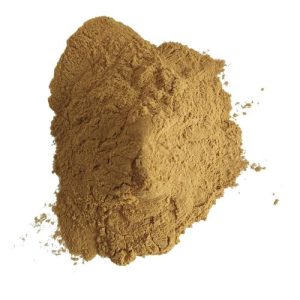Safe and reliable laboratory chemicals | RBOSCHCO- Chemicals Online
PRODUCT PARAMETERS
Description
| PTSA P-Toluene Sulfonic Acid Properties | |
| Other Names | N/A |
| CAS No. | 6192-52-5 |
| Compound Formula | N/A |
| Molecular Weight | N/A |
| Appearance | NA |
| Melting Point | N/A |
| Boiling Point | N/A |
| Density | N/A |
| Solubility in H2O | N/A |
| Exact Mass | N/A |
| PTSA P-Toluene Sulfonic Acid Health & Safety Information | |
| Signal Word | N/A |
| Hazard Statements | N/A |
| Hazard Codes | N/A |
| Risk Codes | N/A |
| Safety Statements | N/A |
| Transport Information | N/A |
(PTSA P-Toluene Sulfonic Acid CAS 6192-52-5)
Overview of PTSA P-Toluene Sulfonic Acid
PTSA, also known as P-Toluene Sulfonic Acid, is an organic compound with the chemical formula C7H8O3S. It is a white or slightly reddish amorphous powder with hygroscopicity, easily soluble in water, ethanol, and ether. PTSA is a strong organic acid with slightly weaker acidity than inorganic acids such as sulfuric acid, hydrochloric acid, and phosphoric acid but stronger than organic acids such as acetic and propionic acid. It can be used as a catalyst for organic synthesis reactions such as esterification, hydrolysis, substitution, and condensation. It is also commonly used in preparing p-toluenesulfonate derivatives such as esters, amides, and nitriles. In addition, PTSA can also be used as a dye intermediate, a raw material for drug synthesis, and an organic solvent.
Characteristic of PTSA P-Toluene Sulfonic Acid
1. Acidic properties: PTSA is a strong organic acid with strong acidity, which can be widely used as an acid catalyst in various organic synthesis reactions, such as esterification, ester exchange, acetalization, etc.
2. Irritability: PTSA has a strong irritant effect on the eyes, skin, mucosa, and upper respiratory tract. When operating PTSA, appropriate protective measures, such as wearing protective goggles, gloves, and respirators, must be taken to prevent harm to the human body.
Application of PTSA P-Toluene Sulfonic Acid
1.Organic synthesis: PTSA, an effective acid catalyst, is generally used in various organic synthesis reactions. It can promote reactions such as esterification, ester exchange, and acetalization, helping to synthesize complex organic molecules.

PTSA is widely used as an acid catalyst in various organic synthesis reactions
2.Dye industry: In the dye industry, PTSA serves as a synthetic intermediate and participates in the synthesis process of dye molecules, helping to produce various brightly colored dyes.

PTSA used in the dye industry
3.Catalyst: Due to its strong acidity, PTSA can catalyze many chemical reactions, accelerating reaction rates and improving production efficiency.

PTSA for catalysts
4. Resin curing agent: PTSA can also serve as a curing agent for resins, reacting with functional groups to solidify the resin into a hard material and improve its physical properties.

PTSA used as a resin curing agent
5. Determination of primary amines: PTSA is used in certain specific chemical analyses to determine the presence and concentration of primary amines. This helps to understand the progress of chemical reactions and the properties of products.

Company Profile
NANOTRUN(www.rboschco.com) is a trusted global chemical material supplier & manufacturer with over 12-year-experience in providing super high-quality chemicals and nanomaterials, including boride powder, nitride powder, graphite powder, sulfide powder, 3D printing powder, etc.The company has a professional technical department and Quality Supervision Department, a well-equipped laboratory, and equipped with advanced testing equipment and after-sales customer service center.If you are looking for high-quality PTSA P-Toluene Sulfonic Acid , please feel free to contact us or click on the needed products to send an inquiry.
Payment Term
L/C, T/T, Western Union, Paypal, Credit Card etc.

Shipment Term
By sea, by air, by express, as customers request.
Storage Conditions:
1. Sealed storage: PTSA has hygroscopicity and is prone to deliquescence. Therefore, when storing, ensure the container is sealed to prevent moisture from entering the air.
2. Avoid light exposure: PTSA should be stored in a cool, ventilated, and dark place to prevent it from decomposing or deteriorating due to light exposure.
3. Temperature control: Although PTSA has a high melting point, storing it at a lower temperature is still recommended to prevent it from melting or undergoing other chemical changes due to high temperature.
4. Avoid contact with incompatible substances: PTSA may undergo chemical reactions with certain substances, so contact with incompatible substances (such as strong bases, strong oxidants, etc.) should be avoided during storage.
5. Safety signs: Due to the potential irritation of PTSA to the eyes, skin, mucous membranes, and upper respiratory tract, appropriate safety signs should be set up in storage areas to remind personnel to pay attention to safety.
6. Regular inspection: The stored PTSA should be inspected regularly to ensure it has not deteriorated or decomposed. If any abnormal situation is found, immediate measures should be taken to handle it.
FAQ
Q1
What type of catalyst is PTSA mainly used in organic synthesis?
Re:PTSA is mainly used as an acidic catalyst in organic synthesis. Due to its strong acidity, PTSA can effectively promote many organic reactions, such as esterification, ester exchange, acetalization, etc. It can provide the required protons in the reaction, thereby accelerating the progress of the reaction.
Q2
What factors affect the catalytic activity of PTSA?
Re:Various factors influence the catalytic activity of PTSA. Firstly, the reaction's temperature and pH value significantly impact the catalytic activity of PTSA. Generally speaking, higher temperatures and appropriate acidic environments benefit the catalytic activity of PTSA. In addition, factors such as the properties of reactants, the selection of solvents, and the amount of catalyst used can also affect the catalytic activity of PTSA.
Q3
What are the unique application advantages of PTSA compared to other sulfonic acid catalysts?
Re:Compared with other sulfonic acid catalysts, PTSA has some unique application advantages. Firstly, PTSA has high catalytic activity and can complete the reaction at lower temperatures and in a shorter time. Secondly, PTSA has good selectivity for certain specific reactions and can yield purer products. In addition, PTSA also has good stability and reusability, which can reduce production costs and waste generation.
Q4
What is the catalytic efficiency of PTSA in esterification reactions?
Re:PTSA exhibits high catalytic efficiency in esterification reactions. It can effectively promote the esterification reaction between acids and alcohols, generating corresponding ester products. Under appropriate reaction conditions, PTSA can accelerate the reaction and improve the yield and purity of the product. In addition, PTSA can also catalyze esterification reactions under mild conditions, reducing the generation of by-products.
Q5
How to ensure product quality and purity in the production process of PTSA?
Re:Ensuring product quality and purity is crucial in the production process of PTSA. Firstly, selecting high-quality raw materials and conducting strict inspections and controls is necessary. Secondly, strict control of reaction conditions, such as temperature and pH value, is required during the production process to guarantee the smooth progress of the reaction and reduce the generation of by-products. In addition, appropriate separation and purification techniques, such as recrystallization, filtration, etc., need to be adopted to remove impurities and upgrade the purity of the product. Finally, strict monitoring and quality control should be carried out at all stages of the production process to ensure that the quality and purity of the final product meet the requirements.
REQUEST A QUOTE
RELATED PRODUCTS
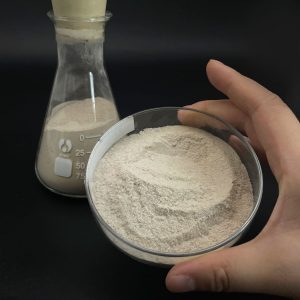
OEP-70 Sodium 2-Ethylhexanol Ethoxylate Phosphate
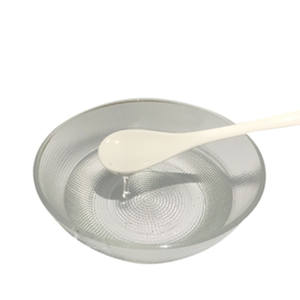
Stearyldimethylbenzylammonium chloride 1827 CAS NO 122-19-0

EF-42 Perfluoro-1-butanesulfonic Acid Potassium Salt CAS 29420-49-3
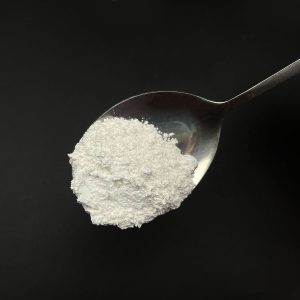
Polyglycol Stearate CAS 106-11-6
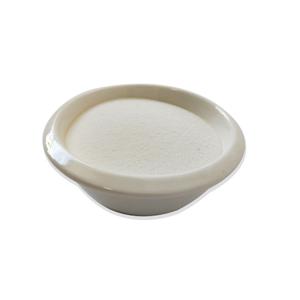
GMS Glyceryl monostearate CAS 31566-31-1
